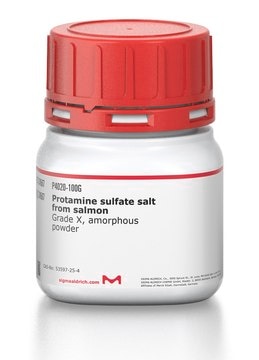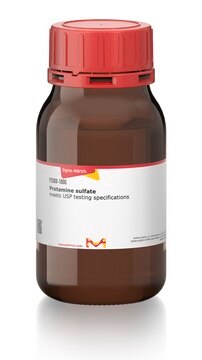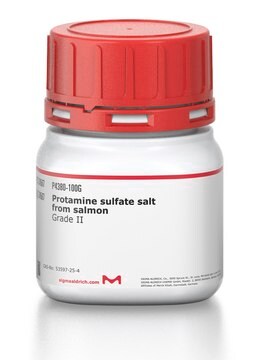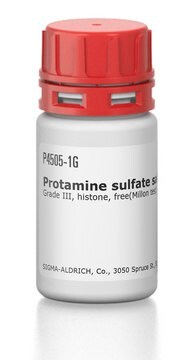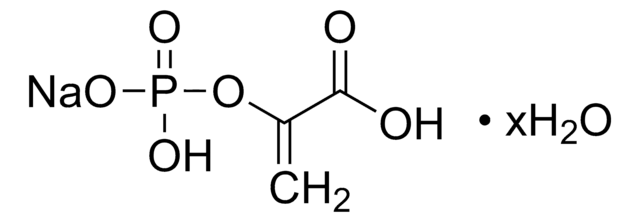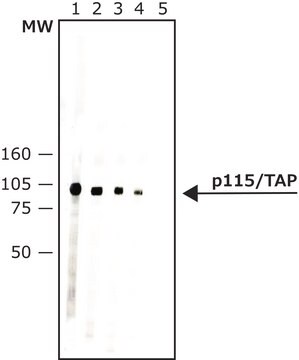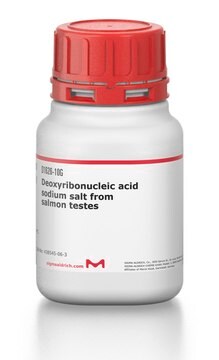Recommended Products
Product Name
Protamine from salmon, Grade IV, Histone, free(Millon test)
biological source
fish (salmon)
Quality Level
type
Grade IV
form
solid
impurities
Histone, free (Millon test)
solubility
H2O: soluble, clear to slightly hazy, colorless to faintly yellow
storage temp.
−20°C
General description
Protamines are proteins rich in cysteine and arginine. It possesses many phosphorylation sites. Salmon fish contains around 15 genes encoding protamine. It is found to be localized to the sperm head.
Application
Protamine from salmon has been used to avoid in vitro AT complex formation in samples from dogs pre-treated with heparin. It has also been used to study the influences of external potential on adsorption of various proteins to a metal surface.
Biochem/physiol Actions
Protamine in the form of solid lipid nanoparticles (SLN) promoted transfection with plasmid DNA more efficiently and with less cytotoxicity than comparable SLNs composed of Esterquat-1.
Protamines are found to displace histones in DNA during spermatogenesis in animals and plants. Protamine is useful as a heparin neutralizer during heart surgery, dialysis and in many other clinical procedures.
Storage Class Code
11 - Combustible Solids
WGK
WGK 3
Flash Point(F)
Not applicable
Flash Point(C)
Not applicable
Personal Protective Equipment
dust mask type N95 (US), Eyeshields, Gloves
Choose from one of the most recent versions:
Already Own This Product?
Find documentation for the products that you have recently purchased in the Document Library.
Customers Also Viewed
Intravascular inhibition of factor VIIa and the analogue NN1731 by antithrombin
Petersen LC, et al.
British Journal of Haematology, 152(1), 99-107 (2011)
Adsorption characteristics of various proteins on a metal surface in the presence of an external electric potential
Htwe EE, et al.
Colloids and Surfaces, B: Biointerfaces, 262-268 (2018)
Protamine and protamine reactions
Park Kyung W
International Anesthesiology Clinics, 42(3), 135-145 (2004)
Vanesa Lafarga et al.
The EMBO journal, 40(13), e103311-e103311 (2021-05-13)
Due to their capability to transport chemicals or proteins into target cells, cell-penetrating peptides (CPPs) are being developed as therapy delivery tools. However, and despite their interesting properties, arginine-rich CPPs often show toxicity for reasons that remain poorly understood. Using
The protamine family of sperm nuclear proteins
Balhorn Rod
Genome Biology, 8(9), 227-227 (2007)
Our team of scientists has experience in all areas of research including Life Science, Material Science, Chemical Synthesis, Chromatography, Analytical and many others.
Contact Technical Service